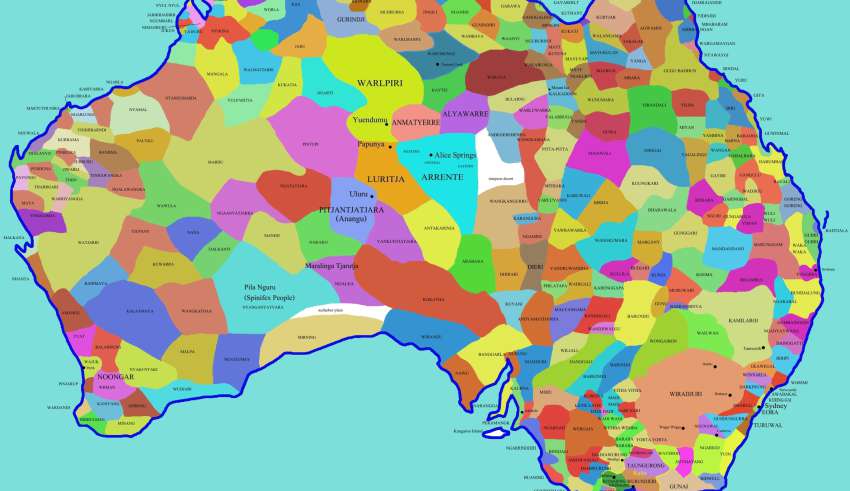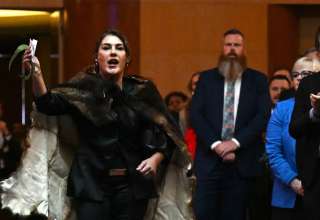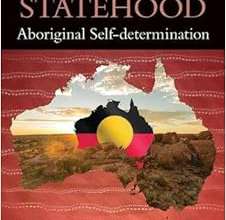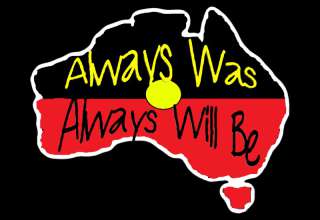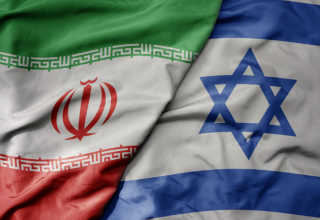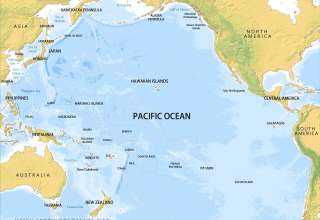by Wallace McKitrick
This is the second instalment of a three-part series that examines the literature of First People’s writers assertions of unceded sovereignty.
The fabric of self-determination
In Part One of this article, posted previously, various authors’ presentations of the continuous self-determination struggles and frequent victories of the last 100 years remind us that it would be a mistake to assume that Indigenous sovereignty consists only in a specific act of legislation or formal institutional arrangement. This assumption overlooks the many layers or realms of daily practice that interact to form the ‘fabric of self-determination’.
Just a few of these realms are: degrees of self-government of communities and regions where traditional owners have achieved land rights; co-management of specified areas of ‘crown land’; Indigenous housing cooperatives or instrumentalities; university units run by First Peoples academics with inclusion of community Elders (such as the Jumbunna Institute at UTS); organisations devoted to care of land and waters, including the Rangers Programs in northern Australia; continuation or resumption of traditional agricultural and fishing practices; community based economic activities; cultural ceremonies and practices, especially where some access to traditional lands and sites has been won; language continuation and revitalisation; the flowering of visual art, music and song-writing, theatre, dance, rap, poetry and novels over recent decades; and the tenacity of ethical values derived from traditional philosophies rooted in human-biosphere-cosmos relationships.
All these positive dimensions are real and practised by numerous language groups and communities throughout this country. Are they acknowledged and applauded by the corporate media or governments? Generally, no. The primary role of those privileged echelons is to protect the control and profits of the powerful corporations who want exclusive ownership of land, minerals, and waters (above and below ground) and uncontested control of society’s structures and habits. This fact once again leads to the conclusion that the people’s movement cannot rely on existing ‘settler’ institutions, even when they occasionally make gestures of support.
By drawing on the following sources, some of this diversity of Indigenous sovereign intent and action can be highlighted.
Aunty Mary Graham
In a profound 1999 paper titled ‘Some Thoughts about the Philosophical Underpinnings of Aboriginal Worldviews’, Mary Graham — Kombumerri and Wakka Wakka community development leader, Elder and philosopher, and now university professor – offers ‘two axioms’:

The Land is the Law
The land is a sacred entity, not property or real estate; it is the great mother of all humanity. The Dreaming is a combination of meaning (about life and all reality), and an action guide to living. The two most important kinds of relationship in life are, firstly, those between land and people and, secondly, those amongst people themselves, the second being always contingent upon the first. The land, and how we treat it, is what determines our human-ness. Because land is sacred and must be looked after, the relation between people and land becomes the template for society and social relations. Therefore all meaning comes from land.
You are not alone in the world
Aboriginal people have a kinship system which extends into land; this system was and still is organised into clans. One’s first loyalty is to one’s own clan group. It does not matter how Western and urbanised Aboriginal people have become, this kinship system never changes. (It has been damaged by, for example, cultural genocide/Stolen Children/westernisation etc, but has not been altered substantially.) Every clan group has its own Dreaming or explanation of existence. We believe that a person finds their individuality within the group. To behave as if you are a discrete entity or a conscious isolate is to limit yourself to being an observer in an observed world.
‘Although Indigenous people everywhere are westernised to different degrees’, she writes,
Aboriginal people’s identity is essentially always embedded in land and defined by their relationships to it and to other people.
Aboriginal society is accustomed to looking to the long term and thinking strategically. A society which has a custodial ethic has to do this. Many White Australians are concerned to be involved in the maturation process of Australian society; … they are searching for a new identity – politically or sociologically. The best way of achieving these ends is to start establishing very close ties with land, not necessarily via ownership of property but via locally-based, inclusive, non-political, strategy-based frameworks, with a very long term aim of simply looking after land.’
Aboriginal Law
refers to a complex relationship between humanity and land which extends to cover every aspect of life; to that extent it is what theorists call a ‘complex system’, in that it explains both the observer and the observed. … [It] explains the origins and meaning of the cosmos (including the observer), and it is a science in that it does so rationally, and with empirical support. … In this sense Aboriginal Law could be said to be both an action guide to living and a guide to understanding reality. … In a sense, Aboriginal Law is ‘grown’ not ‘made’.
Presenting ‘a view of the West from an Aboriginal perspective’, Mary Graham observes that throughout Western history
from the birth of the state to the transformation of people into citizens of nations and members of ever-changing class systems, social relations became ever more disconnected, alienated and strained. This development was softened to some extent, and at the same time camouflaged, by economic materialism, which ensured that people sought spiritual and psychological security through an identity based on ownership. Throughout their history, the behaviour of Westerners has been consistent with that of a people who believe that they are quite alone in existence – that the individual is, metaphysically speaking, totally alone. [Hence] economic rationalism, with its ‘law of the jungle’ approach to the market dictatorship of societies, which has compounded the already existing global socio-political crises.
Part of the problem for Aboriginal people in modern Australia is working out ways in which we can continue carrying out custodial responsibilities to land and, at the same time, try to obtain control over the economic development of our communities without falling prey to the seductions of individualism. At the same time we are trying to deal with issues of Native Title, Stolen Generations, Apologies and Reconciliation, or what’s left of it.
Under the subheading ‘Reflective motive’, Graham writes
Aboriginal society was grounded in an understanding of the human psyche. … Sharing behaviour has to be inculcated in the first place and then ‘maintained’. It involves such concepts as ‘reciprocity’, ‘strategy’ and above all ‘community’. The effect of this transcendence of ego is to inculcate a sense of communal, rather than individuated, identity, and, most importantly, to encourage reflective engagement in all activities. … The custodial ethic, based on and expressed through Aboriginal Law, is essential not only to Aboriginal society but to any society that intends to continue for millennia and wants to regard itself as mature.
Aboriginal law is valid for all people only in the sense that all people are placed on land wherever they happen to be, so that the custodial ethic, which is primarily an obligatory system, may be acted on by anyone who is interested in looking after or caring for land. … The custodial ethic/Aboriginal Law thus cannot be ideologised: it is a locus of identity for human beings, not a focus of identity: we can achieve the fullest expression of our human identity in a location in land.
She goes on to offer ideas about ‘how Australians might (together) manage the development of a collective identity … based in land’, and suggests that
collective recognition that ownership is a social act and therefore a spiritual act [could] eventually emerge … as an intact, collective spiritual identity for all Australians, which will inform and support our daily lives, our aspirations and our creative genius.
(These excerpts don’t do full justice to her important paper. The full text can be found at Graham, M. (1999). ‘Some Thoughts about the Philosophical Underpinnings of Aboriginal Worldviews’. Worldviews: Global Religions, Culture, and Ecology, 3(2), 105-118 https://australianhumanitiesreview.org/2008/11/01/some-thoughts-about-the-philosophical-underpinnings-of-aboriginal-worldviews/ )
Tyson Yunkaporta
Two decades later, in his inventive and lively 2023 book Right Story, Wrong Story, (Professor) Tyson Yunkaporta of the Apalech Clan of northern Queensland testifies to the tenacity of the land-based kinship relationships:
Despite devastating disruption and dysfunction, our Indigenous grapevine and social networks are still so strong on this continent that I have never found myself more than a few days’ walk away from people who are known to me and will give me shelter and food if I need it. …. That relational web … is a hell of a social safety net, when it’s allowed to work properly. It also informs our governance, economies, laws, information storage and diplomacy in some pretty wonderful ways that are worth considering at a time in history when most of the world is trying to reboot its failing institutions. [pp 19-20]
Later, drawing on current conversations with Aunty Mary Graham and Nyikina Warrwa physicist Aunty Anne Poelina, Yunkaporta writes
Both Elders are of the opinion that the survival of life on this earth depends on all communities coming back under First Law, the legal system of the First Peoples. They aren’t proposing that Indigenous Law should replace settler legal systems, but that both need to be integrated in a framework of legal pluralism (where multiple systems of laws can coexist), for which there is plenty of precedent in international law.
A central purpose of Yunkaporta’s Right Story, Wrong Story is to convey distinctive elements of traditional Indigenous ways of ‘being in the world’. He demonstrates continued practice of these elements in modern contexts, and their relevance to critical present-day problems of land-care, climate change and capitalism’s predatory (and suicidal) social structures.
William Jonas’s Social Justice Report 2002
The late Worimi academic and social justice activist Dr William Jonas (1941-2019) was Aboriginal and Torres Strait Islander Social Justice Commissioner of the Australian Human Rights and Equal Opportunity Commission (now Human Rights Commission) from 1999 to 2004. His 2002 report to federal parliament is as relevant now as it was then.
The report examined definitions of self-determination according to international law, noting the intersection of general human rights, economic, social and cultural rights, and special rights (collective and individual) pertaining to Indigenous peoples. Approvingly the Commissioner highlighted a description of self-determination arrived at by a 1998 UNESCO international conference:
[Self-determination is] an ongoing process of choice for the achievement of human security and fulfilment of human needs with a broad scope of possible outcomes and expressions suited to different specific situations. These can include, but are not limited to, guarantees of cultural security, forms of self-governance and autonomy, economic self-reliance, effective participation at the international level, land rights and the ability to care for the natural environment, spiritual freedom and the various forms that ensure the free expression and protection of collective identity in dignity.
Commissioner Jonas quoted Stephen Cornell, advocate of Native American self-government and Geoff Clark, then chair of the Aboriginal and Torres Strait Islander Commission (abolished in 2003-04 by the Howard Government), who had ‘identified some of the relevant questions to identify a genuine commitment of governments to Indigenous self-determination through developing Indigenous governance’:
- When there is talk of injecting more Indigenous decision-making into programs, does
this genuinely mean passing control to Indigenous groups? - Does it involve the acknowledgement of our jurisdictions in this country?
- Will indigenous involvement be limited to operational administration?
- Will it mean non-indigenous governments calling most of the shots, especially on the ‘big issues’?
- Will it embrace genuine control over resources; freedom in the development of appropriate and effective governing institutions; significant and consequential dispute resolution powers and mechanisms; funding via block grants instead of program funds; a partnership in major decisions wherever Indigenous interests are at stake; and genuine jurisdictional power?
‘The [Howard] Government’s approach’, declared the Commissioner
does not reveal a commitment to developing Indigenous capacity in accordance with these issues. Overall, the concerns identified here point to major differences between a rights based approach to … Indigenous policy formulation, and the approach currently favoured by the Government.
The Conclusion of Commissioner Jonas’s report was titled ‘Reclaiming self-determination’. It summarised the federal government’s reductive and stifling approach, but asserted that nonetheless government ‘does not have the central role in determining Indigenous peoples’ destinies. Indigenous peoples possess that role.’
Indigenous peoples have not sat by while [the government’s] framework has been implemented or been passive in their response to it. Developments such as the Lingiari Foundation, the Lumbu Foundation, the Australian Indigenous Leadership Centre at the Australian Institute of Aboriginal and Torres Strait Islander Studies and the National Indigenous Youth Movement of Australia fulfil a vital role in developing the leadership capacity for communities to be self-determining. Similarly, communities all over the country continue to work away at the realisation of their aspirations and goals with the often limited tools that they have at their disposal. At the [2002] Indigenous governance conference … there were numerous examples of communities working towards achieving the level of control and say over decision-making that they desire as communities.
[T]he fact that the Government does not support self-determination … is not the end of the matter. Reduced to their basics, these [community] processes identify flaws or problems in the existing system and community-led ways forward for addressing them. By focusing on the capacity of the community to resolve and own these issues, they place the community in a more powerful and central role to take control of their destinies.
Advising Indigenous communities not to rely on government to implement self-determination, the Commissioner affirmed that
True self-determination requires communities to marginalise the role of government in the functioning of their communities. It is a perversion that governments continue to exercise almost total control over many Indigenous communities. It is not a normal functioning of those communities or of government. We must continue to challenge the narrowness of the approach of the Government. Communities must also not be discouraged from seeking their own resolutions to the problems that they face as communities. We must continue to reclaim self-determination.
June Oscar’s Social Justice Report 2020
Bunuba woman Aunty June Oscar (pictured at the top of this article wearing a dark jacket) is the first woman to be appointed as Aboriginal and Torres Strait Islander Social Justice Commissioner of the Human Rights Commission (2017 to the present). Almost 20 years after Dr Jonas’s Social Justice report, her 2020 report is titled Wiyi Yani U Thangani (Women’s Voices): Securing Our Rights, Securing Our Future. The report
builds on the legacy of the 1986 Women’s Business Report: the first time in Australian history that Aboriginal and Torres Strait Islander women were consulted nationally. This was our mob talking to each other about our issues, hopes and aspirations, without the intervention and control of others.
Commissioner Oscar writes
Aboriginal and Torres Strait Islander women and girls have been excluded from freely pursuing their own economic, social and cultural development. This exclusion has not only been on the basis of race and gender, but also as a result of economic and employment structures not acknowledging the unique strengths of Aboriginal and Torres Strait Islander women and girls.
[But] our women on the ground know what they are talking about. They are leaders, survivors, teachers and healers. They carry with them a wealth of inherited, lived and learnt expertise. … Their knowledge matters, every day, to ensuring the health and wellbeing of our children, families, and communities. … This report is grounded in the right of Aboriginal and Torres Strait Islander women and girls to self-determination.
The report concludes
Aboriginal and Torres Strait Islander women and girls are capable and determined to engage in the Australian economy. Women and girls are bringing their skills and knowledge to the workforce and are building strong Aboriginal and Torres Strait Islander-led businesses in areas such as culture, arts, tourism, and land management. … [They] spoke about how, through Aboriginal and Torres Strait Islander-led economic development, we can rebuild a society that is vibrant, healthy and secures our right to determine our own futures.
….
Women are calling for welfare reform and for a holistic approach that starts from our strengths, helps our people heal from trauma, enables our education, and facilitates our entry into employment. Women and girls are motivated for change. … I am inspired by the growth of Aboriginal and Torres Strait Islander business. …. Women and girls are calling for … strategies of support to further increase Aboriginal and Torres Strait Islander participation in the economy that generates positive outcomes for communities.
Artistic expressions of sovereign sentiment: Wudjang and Fire Front
In 2022, Spirit of Eureka reviewed Fire Front: First Nations Poetry and Power Today, edited by Alison Whittaker (2020). We spoke of its presentation of more than 40 writers, old and young, as
a magnificent selection of great historical importance. It expresses stages of Aboriginal and Torres Strait Islander resistance, heroism and achievement over three generations from the 1950s to today. The anthology combines a large range of voices from city and bush in a unified song of survival, insight and shared aspiration. Some voices are declarative, some in soft register, some employing traditional languages of the land or Kriol, some in formal English, some in very modern vernacular. In sentiment and theme, their contributions reinforce each other. The reader is quickly absorbed in the collective vitality of the works.
Spirit of Eureka also reviewed Wudjang, a 2022 work by Bangarra Dance Theatre. The review suggested that Wudjang
exemplifies the truth-telling journey now gathering pace in Australia. The objective is clearly to tell the story of this country and to deconstruct falsehoods at the root of ‘nation’, as indispensable steps toward achieving reparation and a shared, just society.
Revitalisation of Aboriginal languages which have been actively suppressed by colonial authorities is central in the conception of Wudjang. ‘Language is a lifeline. Language is the carrier of knowledge, the means for listening, communicating, and learning across generations. Language is a medicine.’ [Source: Wudjang study guide] Not only is each language born of the land, it is crucial – along with poetry, song, chant and dance – for keeping the fire, the philosophy of human connection with all elements of our biosphere.
In its vision, its extraordinarily rich artistry, and its moral and political implications, Wudjang is entirely consistent with the Uluru Statement from the Heart promulgated in 2017. More generally, given that foreign control continues to distort and impoverish working people’s lives here, both Wudjang and the Statement’s call for Makarrata/Treaty are important in the movement for a genuinely sovereign Australia forged through peace-making internally and externally.
All the testimonials presented so far in this article serve to illustrate that even though unceded sovereignty has not been recognised by the settler state, and the goal of genuine Indigenous self-determination has not yet been achieved on any scale, the dynamic towards these objectives continues to be powerfully expressed in small and large ways in innumerable realms of community life, intellectual, artistic and economic endeavour and Indigenous-controlled organisations.

